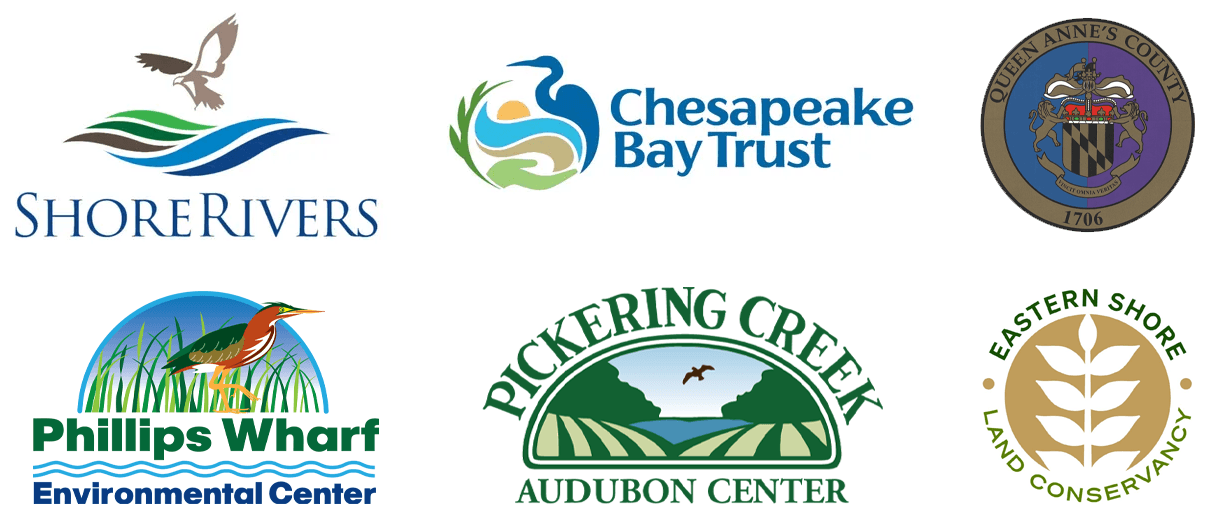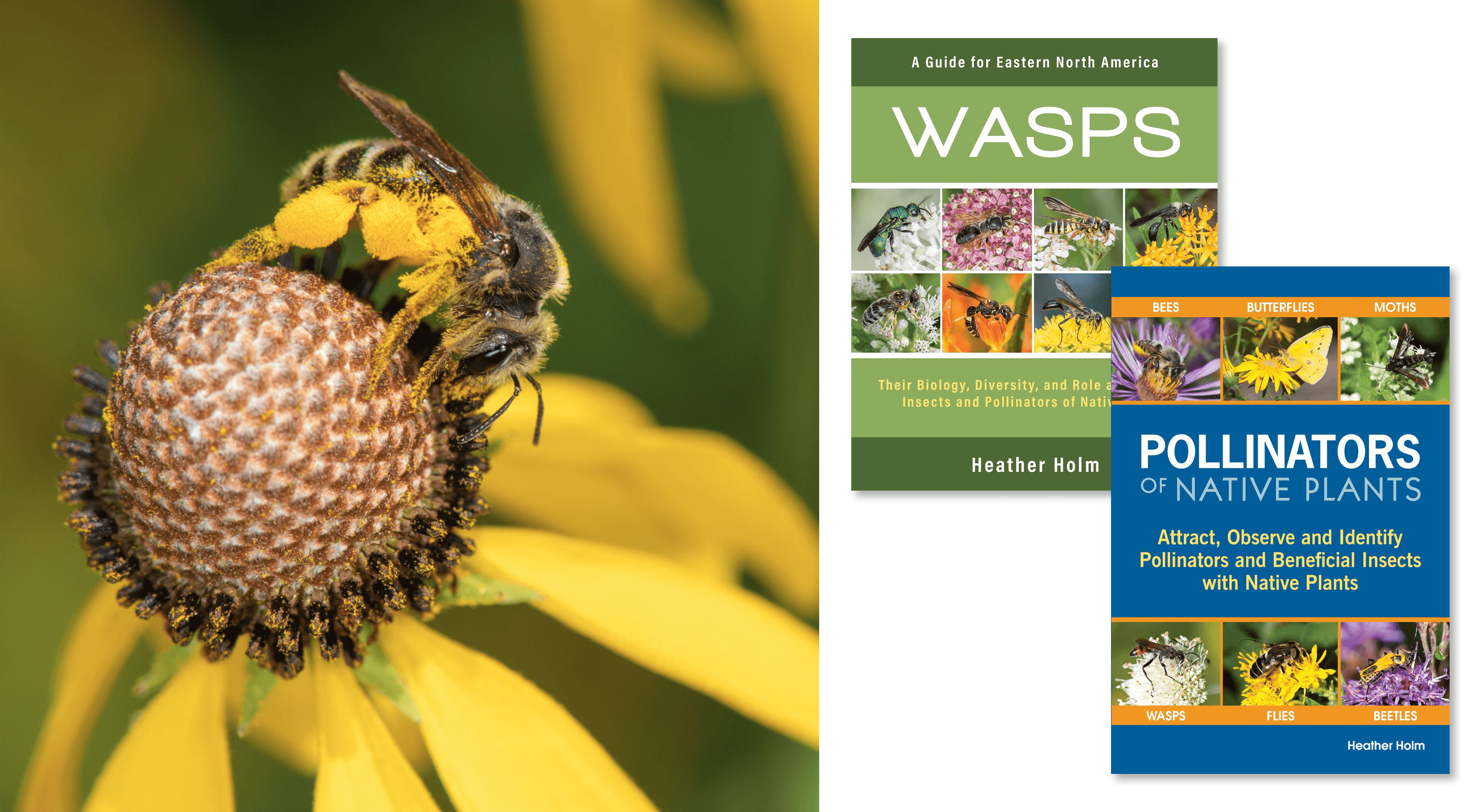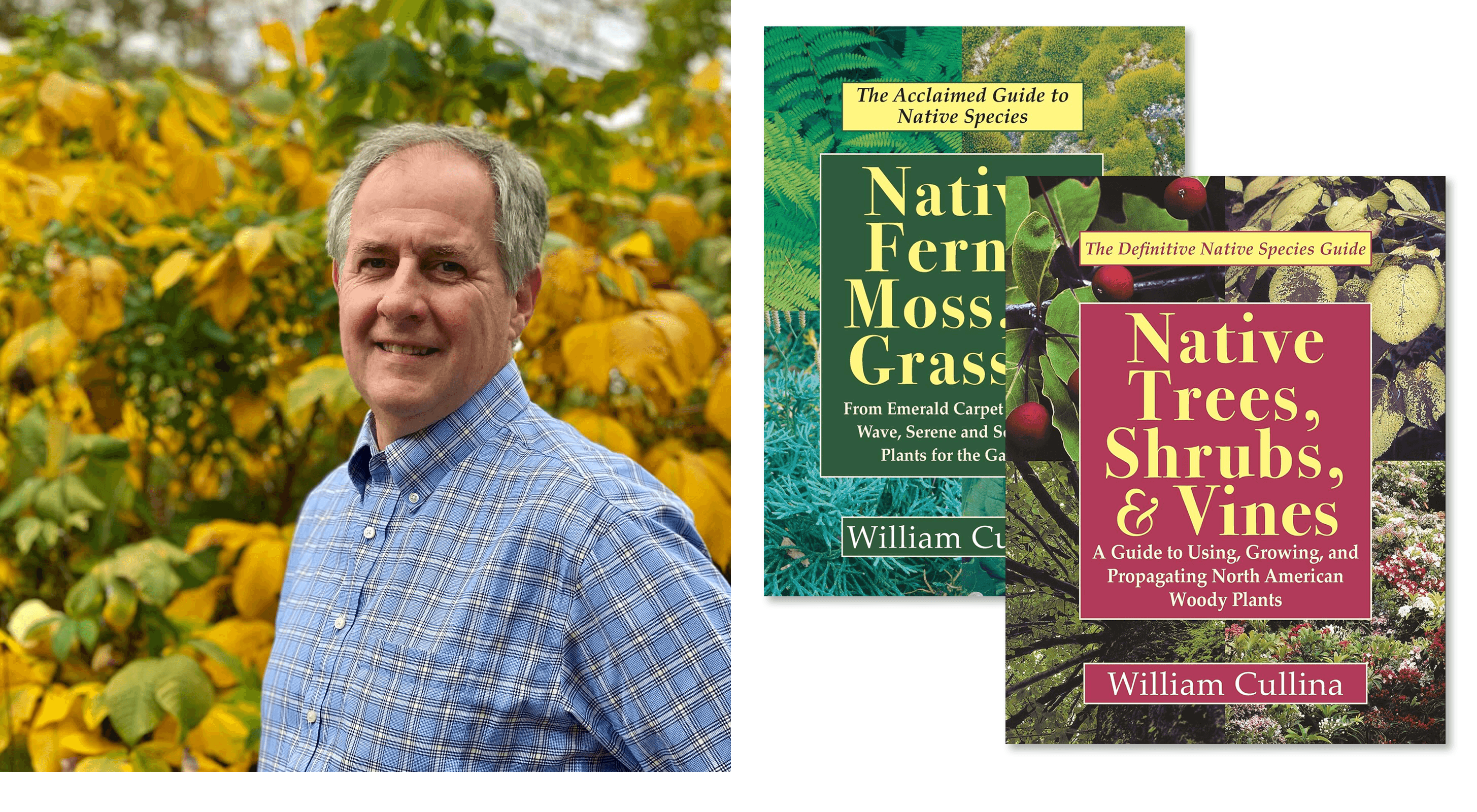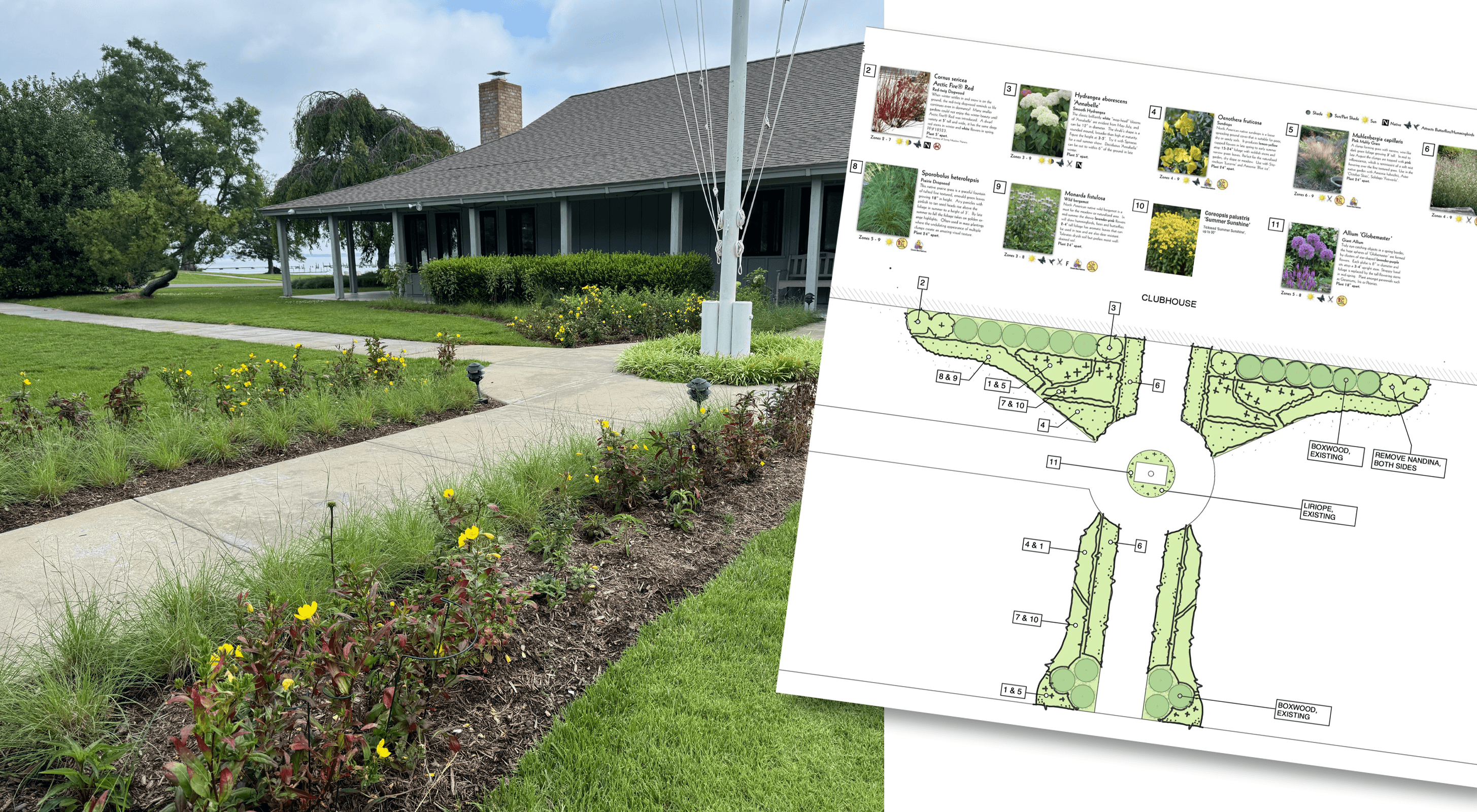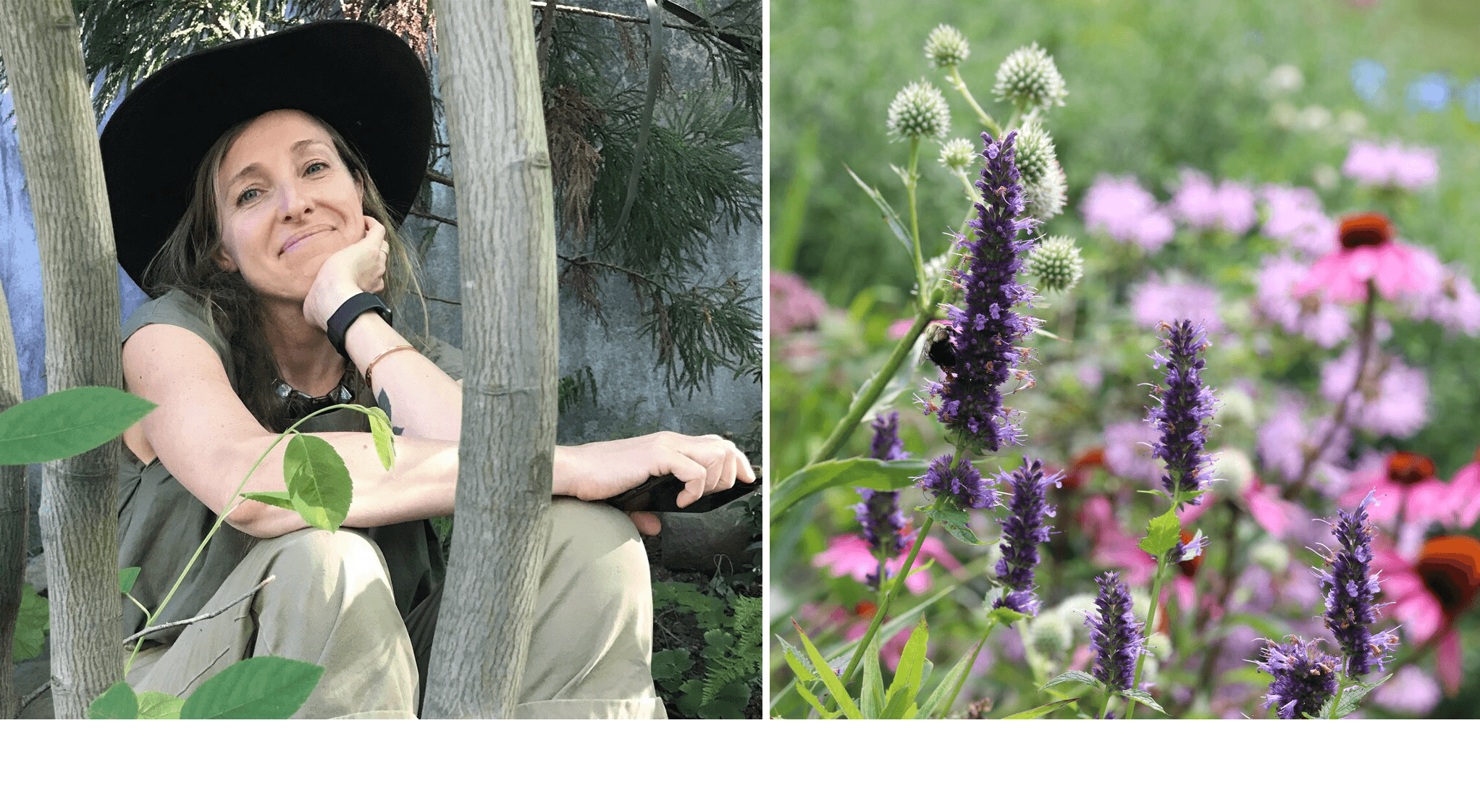Naturally Better Landscaping
In 2023, 2024, and 2025, Adkins Arboretum received funding from the Chesapeake Bay Trust (CBT) to provide outreach and education to local Homeowner Associations (HOAs) and the general public, supporting environmentally friendly landscaping practices.
This speaker series was developed as part of the Naturally Better Landscaping project, in partnership with ShoreRivers, Eastern Shore Land Conservancy, Pickering Creek, and Phillips Wharf, and is offered free of charge, thanks to funding from CBT and Queen Anne’s County. It is open to the general public. Not all presentations will be held at Adkins Arboretum.
The Naturally Better Landscaping Speaker Series is a free four-part series designed to help homeowners, HOA boards, land managers, and community members explore practical and inspiring ways to care for the land using native plants and ecology-based practices. This series is part of the larger Naturally Better Landscaping, a multi-year education and outreach initiative developed.
This year’s speaker series expands on the success of earlier events, offering timely guidance from nationally recognized experts in the fields of horticulture, ecology, and design. Attendees will gain insight into how everyday landscaping choices impact pollinators, water quality, and climate resilience, and how to create landscapes that benefit both people and wildlife.
2025 Speaker Schedule
All speaker events are free and open to the public. To ensure adequate seating and materials, pre-registration is encouraged.
Maryland House Bill 322
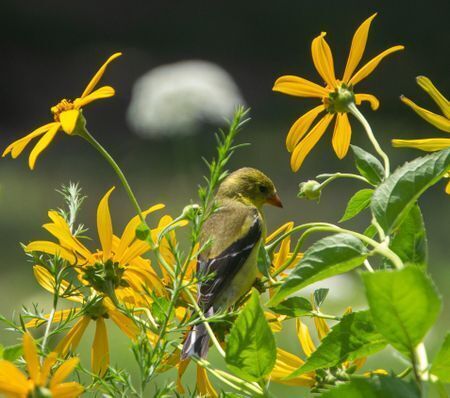
Maryland’s pollinators, songbirds, and waterways are threatened. That’s why Maryland law now protects the rights of homeowners to create habitat for these critically important species. Passed in 2021, Maryland House Bill 322 prohibits HOA governing bodies from imposing undue restrictions on homeowners for employing environmentally-friendly landscaping techniques. These techniques create wildlife habitat, conserve water, prevent runoff, and provide pollution prevention.
Continue reading for examples of environmentally friendly landscaping techniques.
Add Native Plants
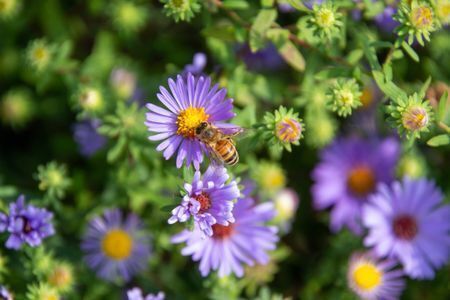
Native plants are the best source of food and shelter for wildlife. Because they’re adapted to local conditions, they require less fertilizer and pesticide. They also require less watering to thrive and can help control stormwater runoff and improve air quality.
Gardens designed with native plants are beautiful and serve many purposes. Bio-habitat gardens provide food, shelter, and nesting materials for wildlife. Pollinator gardens are a specific type of bio-habitat garden that provide nectar and pollen, nesting sites, and water sources for various pollinators. Rain gardens slow and filter runoff, keep water on your property, and reduce the need for irrigation. Xeriscape gardens are designed to thrive with minimal water.
leave the leaves
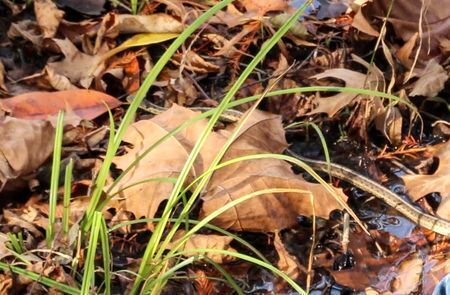
Fallen leaves create a natural mulch, helping to suppress weeds while fertilizing the soil as it breaks down. They also shelter overwintering wildlife such as birds, turtles, lizards, frogs, and insects. Rather than raking or bagging leaves each year, consider mulching them where they fall. You can also move fallen leaves to your garden beds, where they will retain moisture, suppress weeds, and enrich the soil.
Say No to Toxic Insecticides
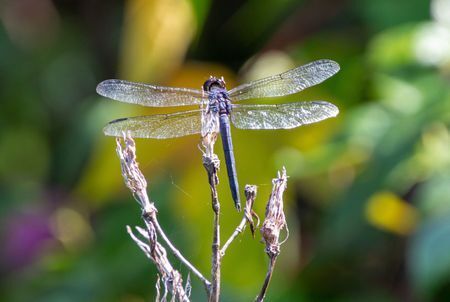
Yard sprays poison insects, which poison the birds and other animals that eat them. The health of our pets is also at risk: two types of cancer in dogs have been attributed to lawn treatments. Examples of alternative pesticides that don’t negatively affect our health or the ecosystem's health include diatomaceous earth and neem oil. Insects can be repelled by mosquito dunks and essential oils. A yard full of native plants will also be full of mosquito predators like dragonflies and songbirds.
Reduce or Eliminate Fertilizers
Excess fertilizers add nitrogen and phosphorus to our rivers and the Bay through runoff when it rains. These nutrients are our biggest sources of pollution, disrupting our waterways, causing algal blooms, and creating “dead zones” where there is not enough oxygen to support aquatic life. Maryland law prohibits home fertilizer application between November 15 and March 1, but you may find that your lawn doesn’t need fertilizer. Always have your soil tested to see if any inputs are needed, and try reducing or eliminating chemical fertilizers to help our rivers. Homemade compost, aged manure, or cover crops are possible alternatives.
Create “No Mow” Areas
97% of the meadows in the 1940s have disappeared, along with vast areas of habitat for a great diversity of plants and animals. Creating “no mow” areas in your yard or common spaces supports wildlife and improves air quality by sequestering carbon and reducing the need for gas-powered mowers.
Slow the Flow
Rain chains are an attractive and innovative way to direct water to gardens and rain barrels, preventing water waste and runoff. Rain barrels hold water for later use; collecting roof runoff reduces the amount of water that flows from your property and provides free water for use on your lawn and garden.
Be an Advocate
Your landscaper works for you. Don’t be afraid to ask questions and advocate for more environmental practices. The Chesapeake Conservation Landscape Council is an excellent resource for communities seeking certified professionals committed to sustainable practices.
Educate your community members to inspire them to employ environmentally friendly landscaping techniques in their yards. The "Naturally Better Landscaping" slideshow can be used as a springboard to create presentations that are specific to your HOA.
Did you know?
- One of every three bites of food we eat depends on a pollinator.
- Nearly $5 billion is spent each year on maintaining turf lawns in the Chesapeake Bay region alone.
- Excess nutrients from lawn fertilizers are one of the biggest polluters of the Chesapeake Bay.
- More than 600 species of plants and animals are listed as endangered, threatened, needing conservation, or extirpated in Maryland.
- Turfgrass accounts for over 40 million acres nationwide but does not perform needed ecosystem services
“If HOAs would make even small changes, they could create better habitat for pollinators and other wildlife nationwide.”
—Don Ireland, an HOA president in Colorado
Click here for a complete list of resources.
Click here for native planting designs.
Naturally Better Landscaping for HOAs was developed in partnership with Shore Rivers and with funding from Chesapeake Bay Trust.
